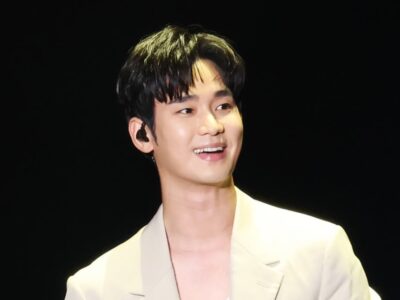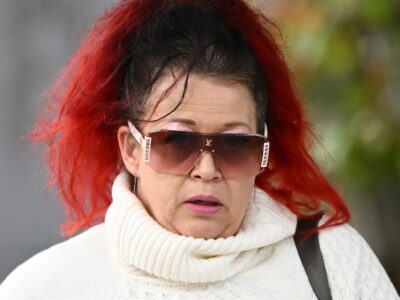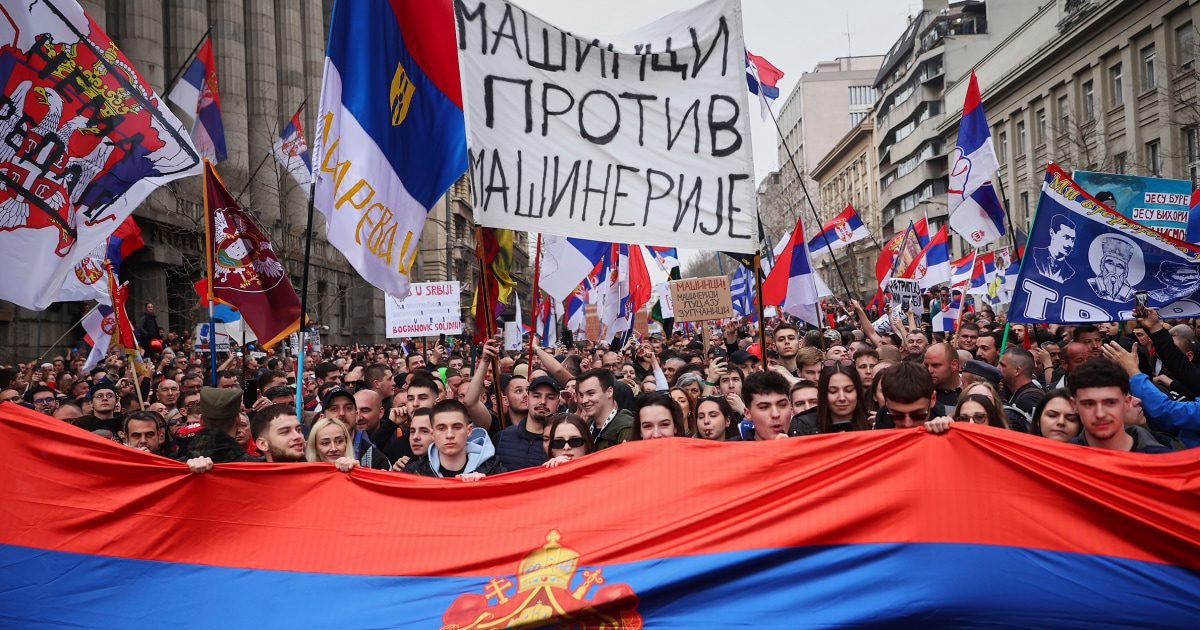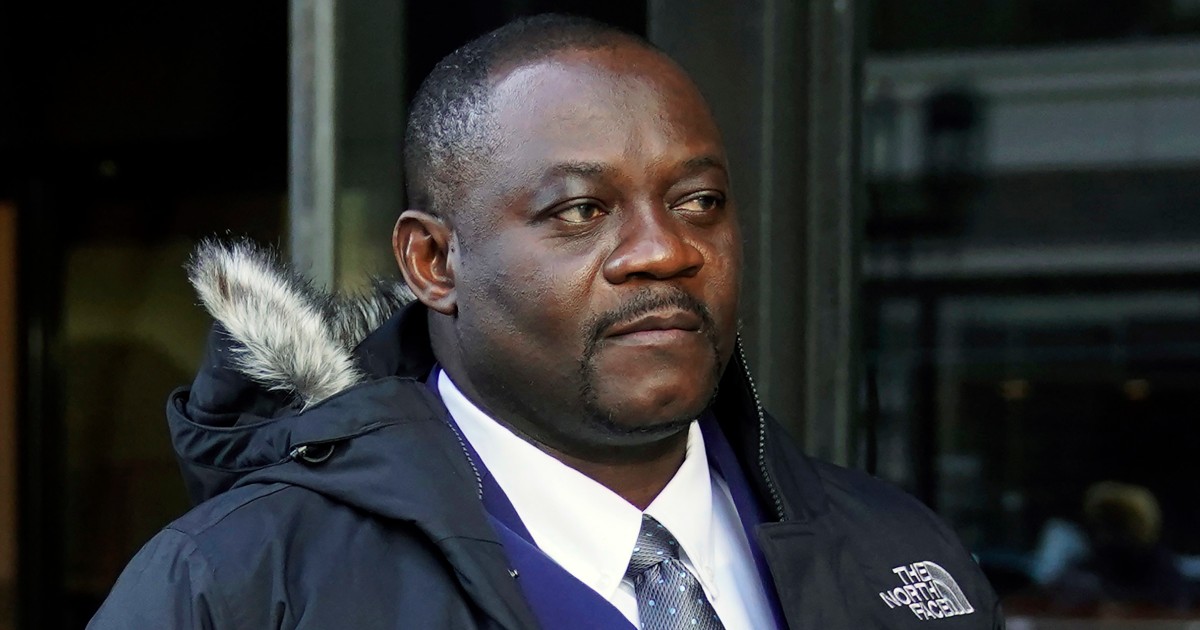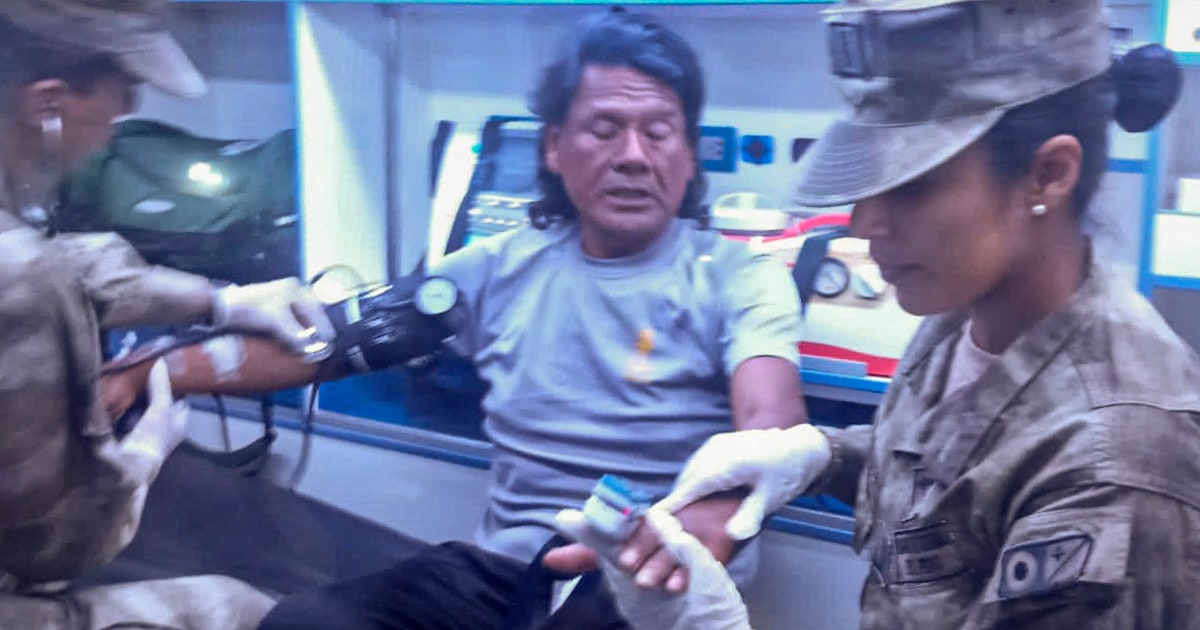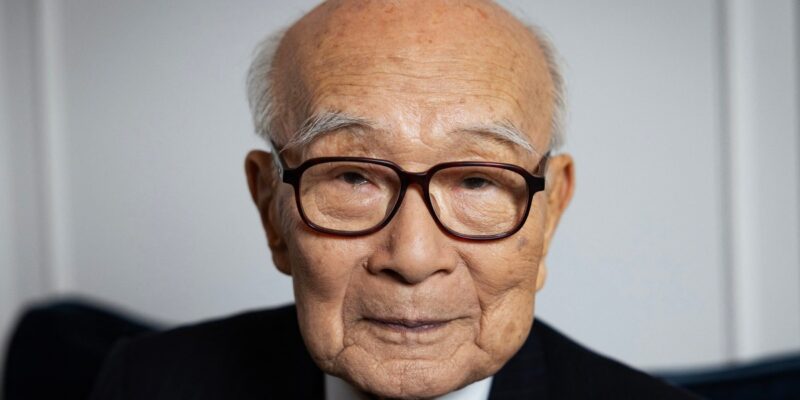
A 92-year-old Japanese survivor of the U.S. atomic bombing of Nagasaki described the horrors he witnessed in 1945 as he accepted this year’s Nobel Peace Prize on Tuesday on behalf of his anti-nuclear weapons group.
The Nobel Peace Prize was awarded in October to Nihon Hidankyo, which is made up of survivors of the U.S. atomic bombings of Hiroshima and Nagasaki, a group also known as hibakusha. The organization, founded in 1956, has battled for nearly 70 years to eliminate nuclear weapons globally by aiming to maintain a taboo around their use.
The United States used the weapons for the first and only time in the two Japanese cities in 1945, hastening Japan’s surrender to the Allies to end World War II. By the end of that year, the bombings had killed an estimated 140,000 people in Hiroshima and 70,000 in Nagasaki, though the death toll continued to rise for decades as people succumbed to the long-term effects of radiation exposure.
Since then, nuclear weapons have multiplied across the globe, with the ability to inflict damage hundreds or thousands of times greater than they did in Hiroshima and Nagasaki. As the hibakusha age, many fear that the stigma associated with the deployment of nuclear bombs will fade and their stories will be lost to history.
“The nuclear superpower Russia threatens to use nuclear weapons in its war against Ukraine, and a cabinet member of Israel, in the midst of its unrelenting attacks on Gaza in Palestine, even spoke of the possible use of nuclear arms,” the 92-year-old survivor, Terumi Tanaka, said in his acceptance speech in Oslo.
“I am infinitely saddened and angered that the ‘nuclear taboo’ threatens to be broken,” said Tanaka, one of three chairpersons of Nihon Hidankyo.
Tanaka said there are 12,000 nuclear warheads around the world today, with 4,000 of them operationally deployed and ready to be launched immediately.
Jørgen Watne Frydnes, chair of the Norwegian Nobel Committee, said in introductory remarks that the mission of the hibakusha was more urgent than ever.
“None of the nine countries that possess nuclear weapons — the United States, Russia, China, France, the United Kingdom, India, Pakistan, Israel and North Korea — appear interested in nuclear disarmament and arms control at present,” he said. “On the contrary, they are modernizing and building up their nuclear arsenals.”
According to a report in June by the International Campaign to Abolish Nuclear Weapons, which was awarded the Nobel Peace Prize in 2017, $10.7 billion more was spent globally on nuclear weapons in 2023 than in 2022.
Frydnes said the committee was calling on the five nuclear powers that have signed the Treaty on the Non-Proliferation of Nuclear Weapons — the U.S., Britain, China, France and Russia — to take their obligations seriously and that more countries should ratify it.
“It is naive to believe our civilization can survive a world order in which global security depends on nuclear weapons,” he said. “The world is not meant to be a prison in which we await collective annihilation.”
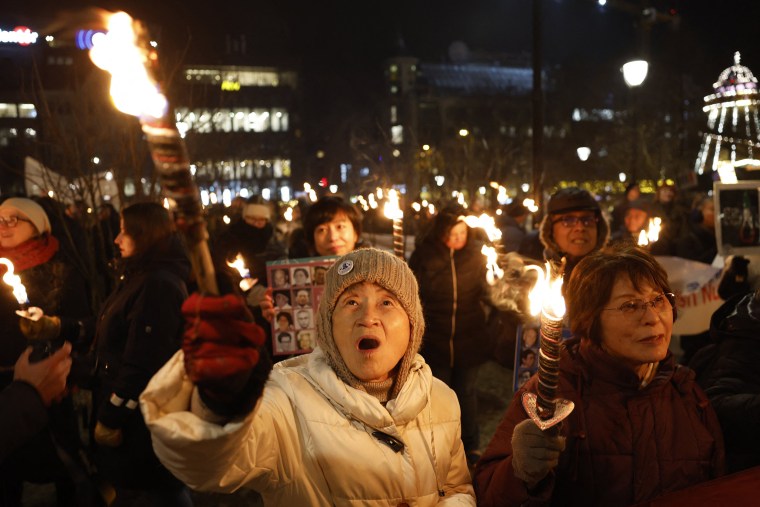
A torchlight procession in honor of Nobel Peace Prize laureate Nihon Hidankyo in Oslo on Tuesday.Odd Andersen / AFP – Getty Images
Tanaka was 13 years old when the U.S. bombed Nagasaki on Aug. 9, 1945, three days after detonating the first atomic bomb over Hiroshima.
Tanaka, who was at home just a couple of miles from where the bomb hit, said he heard the buzzing sound of a bomber jet and was then “engulfed in a bright, white light.” An intense shock wave followed, crushing his house and others.
He saw the full devastation three days later when he and his mother went looking for the families of two of his aunts, who lived closer to ground zero.
He found the charred body of one aunt at what remained of her house, along with the body of her grandson, a university student. At his other aunt’s house, his aunt died just before they arrived, while his grandfather was on the verge of death, having been severely burned all over his body.
His uncle, who at first had seemed mostly unharmed, later died after leaving the area to seek help.
“The deaths I witnessed at that time could hardly be described as human deaths,” Tanaka said. “There were hundreds of people suffering in agony, unable to receive any kind of medical attention.”
“I strongly felt that even in war, such killing and maiming must never be allowed to happen.”
Tanaka said the average age of atomic bomb survivors is now 85, and that he hoped the next generation would find ways to build on their advocacy efforts.
“I hope that the belief that nuclear weapons cannot — and must not — co-exist with humanity will take firm hold among citizens of the nuclear weapon states and their allies,” he said, “and that this will become a force for change in the nuclear policies of their governments.”


